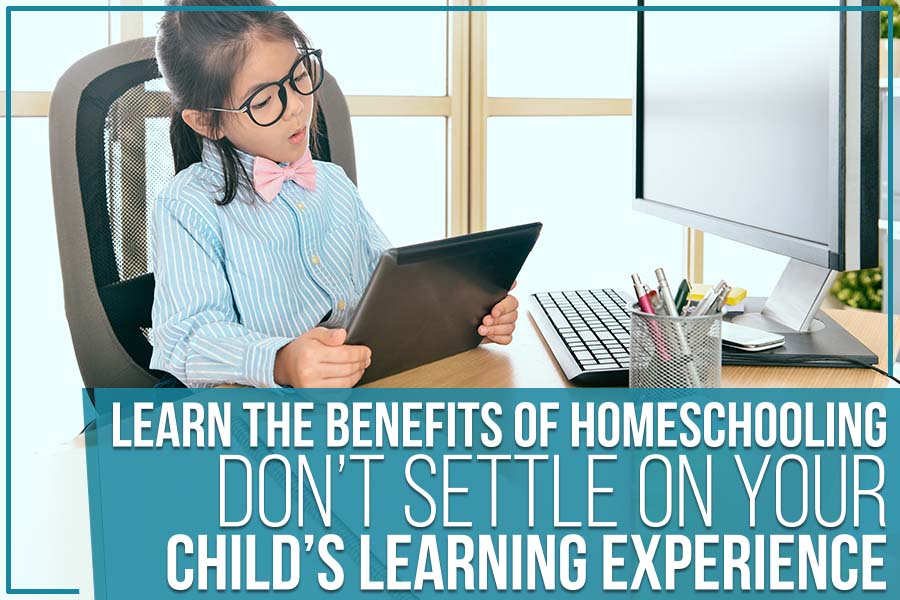
Benefits Of Homeschooling to improve Your Child’s Learning Experience
August 25th
4 years ago
Homeschool
-
Share this post
The Unexpected Homeschool ExperienceEmpty heading
This past year was unlike any other for families in Los Angeles and beyond. Parents with younger children in traditional schools had to suddenly adjust to having their kids learn virtually at home. For many, this was their first experience with homeschooling, and the transition from structured classrooms to home-based learning was stressful and challenging.
Parents and students were used to the routines, peer interactions, and structured instruction of traditional schools. Suddenly adapting to personalized learning at home required preparation that few families had.
Why Traditional Distance Learning Often Falls ShortEmpty heading
Many public and private schools struggled to adapt curricula for at-home learning. As a result:
- Students often received lessons that were difficult to follow.
- Many children lost valuable learning time—on average, up to five months of academic progress.
- Parents felt overwhelmed trying to supplement or fix incomplete programs.
This is where Groza Learning Center’s homeschool programs make a difference.
Homeschooling Can Be So Much More!Empty heading
With Groza Learning Center, homeschooling benefits go far beyond surviving virtual school. Families in Malibu, West LA, Bel Air, and the broader Los Angeles area have seen their children thrive academically and socially with our programs.
Our hybrid homeschool program Los Angeles offers:
- 1:1 education with live, interactive classes online or in-person
- Personalized learning adapted to each child’s strengths, needs, and learning style
- Safe, accredited curriculum through a flexible Westside homeschool program
- Opportunities for socialization, extracurricular activities, and community engagement
Students experience a program that supports their academic growth while allowing parents peace of mind.
Frequently Asked Questions (FAQs)
There are many benefits of homeschooling, especially with a hybrid homeschool program in Los Angeles:
- Students learn at their own pace without pressure from traditional classroom schedules
- Homeschooled children often score higher on standardized testing compared to public school peers
- Students with learning differences (e.g., ADHD, ADD) benefit from personalized learning and executive functioning coaching
- Homeschooling prepares children for private schooling, college, and life beyond academics
Not at all! Research shows that homeschooled children often:
- Score higher on self-esteem and personal security indices
- Experience lower rates of anxiety
- Engage actively in their communities through volunteering and civic participation
- Develop effective, high-quality social skills
At Groza Learning Center, our West LA homeschool program integrates structured socialization opportunities with other homeschooled students and extracurricular activities.
Families choose homeschooling for many reasons:
- Dissatisfaction with traditional schooling or safety concerns
- Children with special needs who require homeschooling children with learning differences
- Flexibility for parents working from home or relocating frequently
- Desire for a personalized, accredited homeschool program in California
Parents can customize schedules, avoid long commutes, and provide children with a learning environment tailored to their unique needs.
Absolutely. Our Malibu homeschool program, Bel Air homeschool program, and Westside homeschool program:
- Are fully accredited in California
- Offer a complete K–12 curriculum with elective choices
- Support personalized learning and 1:1 education to meet your child’s goals
We believe we can help any child reach their potential, no matter the circumstances. At Groza Learning Center, we:
- Listen to your story and goals
- Assess your child’s unique needs and learning style
- Create a personalized education plan tailored to your child
We offer a free Education Plan Consultation for families in Malibu, West LA, Bel Air, and the greater Los Angeles area. Call us at (310) 454-3731 to get started.
Groza Learning Center: Why Families Choose Us
- 20+ years of experience in homeschooling and private school prep
- Hybrid homeschool programs that combine in-person and online learning
- 1:1 education for personalized growth
- Support for homeschooling children with learning differences
- Accredited K–12 programs recognized across California
Want to learn more about Our
If you prefer to schedule a call, click here to book a consultation
